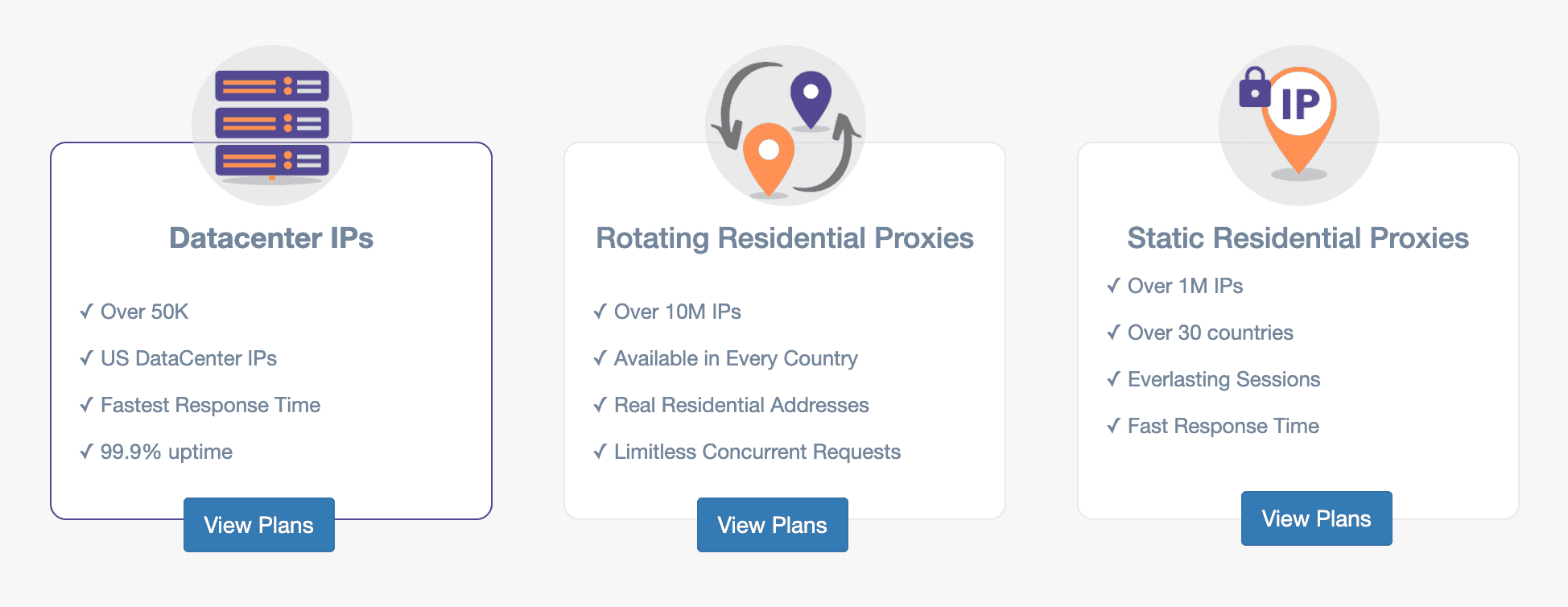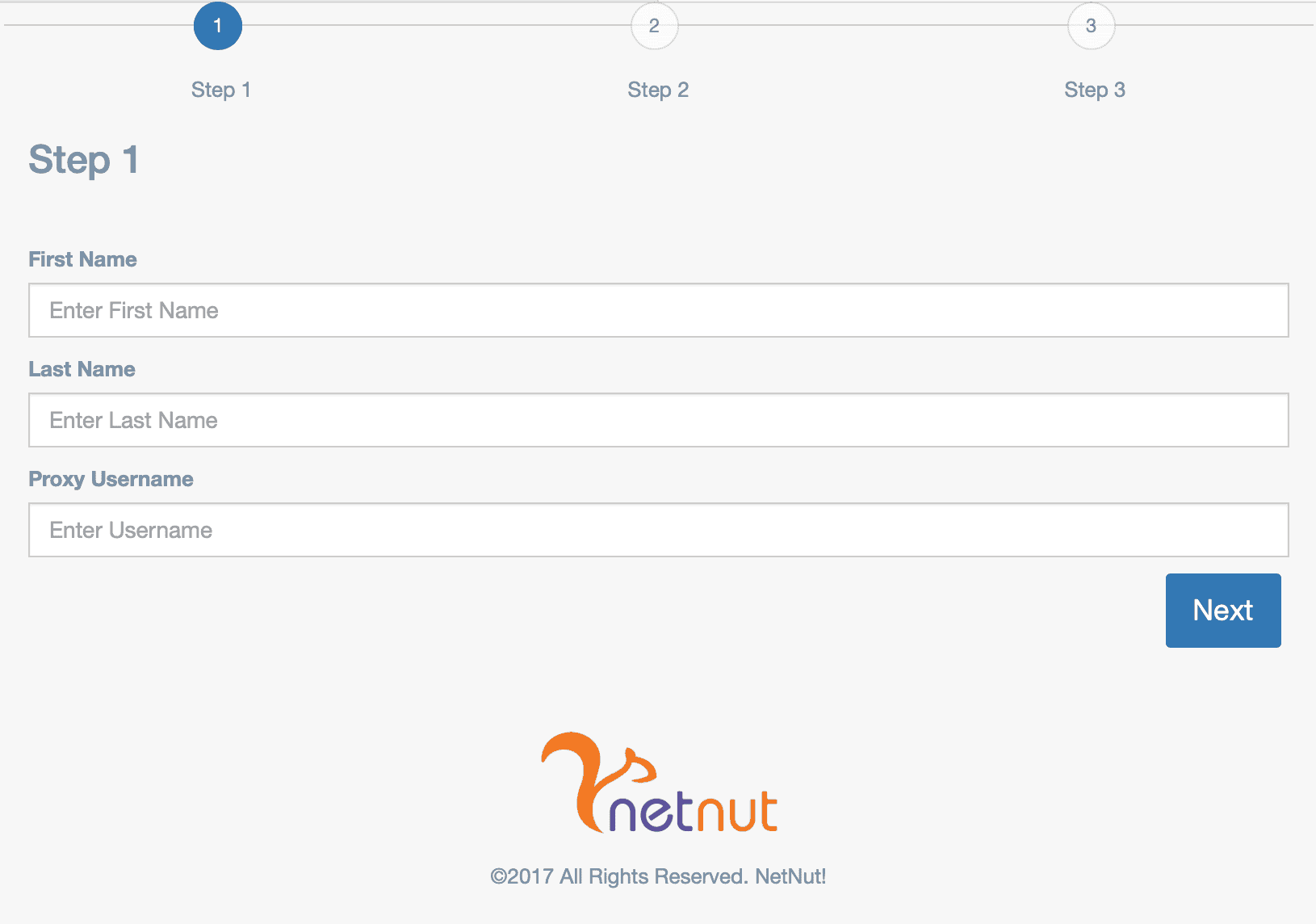NetNut Launches New Proxy Types, Self-Service
Say hello to datacenter and peer-to-peer residential IPs, no-talking registration.
- Published:

New IP Types
Perhaps the biggest part of the announcement is NetNut’s expanded lineup of IP addresses. From now on, the provider offers three different proxy IP types:
- Datacenter proxies – 50,000 IP addresses in the US. The pricing model indicates that they use the shared backconnect model.
- Rotating residential proxies – over 5M IP addresses in every country. They reportedly allow unlimited concurrent requests. NetNut fails to provide more details, such as whether the IPs offer city-level targeting or what the rotation times are.
- Static residential proxies – over 1M IP addresses in 30 countries. They have everlasting sessions and fast response times.
Update: NetNut has contacted us and asked to clarify the numbers: 10M rotating residential IPs, 2M static residential IPs, and 110 thousand datacenter IP addresses.
Updated Pricing Plans
Another important change concerns the pricing plans. NetNut has introduced new low-cost options that start from as little as $20 for all IP types. This shifts, or rather broadens, the provider’s focus from enterprises and resellers with large needs to a wide variety of companies and even individuals.
Below is the full updated pricing model. Note that all plans are monthly and non-recurring:
| Plan | Datacenter | Rotating residential | Static residential |
| Nano (1GB) | – | $20 ($20/GB) | $25 ($25/GB) |
| Micro (5GB) | – | $90 ($18/GB) | $115 ($23/GB) |
| Mini (10GB) | – | $175 ($17.5/GB) | $200 ($20/GB) |
| Starter (20GB) | $20 ($1/GB) | $300 ($15/GB) | $350 ($17.5/GB) |
| Advanced (50GB) | $45 ($0.9/GB) | $600 ($12/GB) | $750 ($15/GB) |
| Production (100GB) | $80 ($0.8/GB) | $800 ($8/GB) | $1000 ($10/GB) |
| Semi-Pro (250GB) | $187.5 ($0.75/GB) | $1625 ($6.5/GB) | $2000 ($8/GB) |
| Professional (500GB) | $350 ($0.7/GB) | $2500 ($5/GB) | $3250 ($6.5/GB) |
| Master (1TB) | $500 ($0.5/GB) | $4000 ($4/GB) | $5000 ($5/GB) |
Simplified Onboarding Flow
The last change involves NetNut’s onboarding process. Now customers will no longer need to talk with the provider’s Sales team to register on the platform. Instead, NetNut has introduced a three-step onboarding form that lets you complete the registration without human interaction.

What happens after that, depends on the plan. It looks like the new datacenter IP plans don’t even have a KYC check – in other words, you’ll be able to buy and start using them instantly. The rotating and static residential IP plans will require a brief chat with NetNut’s team.
A Big Update Overall
All things considered, the changes really are big. Not only do they make the provider more versatile, but also approachable to a much wider audience. That shows NetNut’s ambition to compete with the major proxy service providers on all fronts.
To quote NetNut’s CEO Barak Avitbul:
“We are proud to launch our next generation of IP networks, a wide platform for serving any customer size. The new platform is part of our strategy to provide easy access to IP proxy networks for all type of users and to expand our consumer solutions. Our new platform offers, for the first time, custom-made dynamic solutions to meet each type of customer needs. We believe that by adding different pricing options and upgrading our business model, our customer traction will be enhanced, providing the company a new stream of users as well as new leads from business customers.”
We’re especially intrigued by the new pool of peer-to-peer residential proxies. Considering that it already includes over 5M IP addresses, it looks like NetNut has been building it for a while. The announcement also confirms our prediction in the news about NetNut’s launch of a free VPN back in January.
Curiously, the provider’s original pool of static residential IPs has actually decreased, and quite markedly at that. We’re not sure which source to believe, but the difference between NetNut’s Twitter (10M IPs) and its dashboard (1M IPs) is huge. We’re wondering if that was a tradeoff the company had to make.
At the time, NetNut still hasn’t updated its website with new information (save for some FAQ questions).